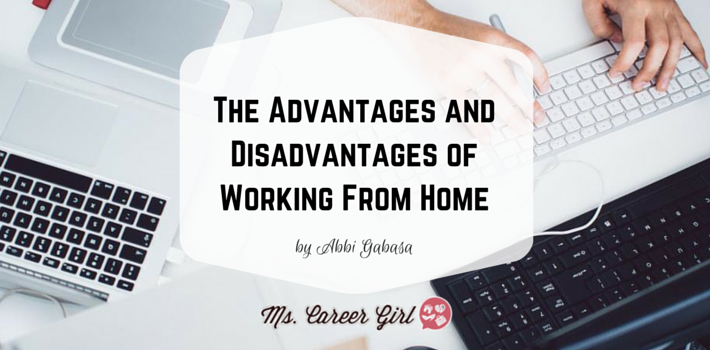The Advantages and Disadvantages of Working From Home

According to a recent survey, over thirty per cent of office employees say that their working environment directly correlates with their productivity and job satisfaction. If you’re stuck in a cubicle day after day, working from home can be an incredibly tempting prospect, but every working situation comes with its own challenges, so it’s important to weigh up the pros and cons before making a move. Here’s a guide to the advantages and disadvantages of working from home, to help you decide if it’s the right choice for you.
No Commute
When you work from home your commute disappears, and you can just head straight from breakfast to your desk. This can cut out a wide array of costs you probably didn’t even realize you were accumulating as you clock up the miles, such as fuel costs, any parking costs, and general car wear and tear; additionally, your tyres are likely to last significantly longer if they aren’t getting worn day in and day out. As well as financial savings, the short commute means you’re likely to be able to fit in more sleep, and potentially even eat more healthily as you’re you’ll be able to prepare your lunch at home rather than resorting to fast-food options on the go. You can also save on clothing, as you won’t need to keep topping up that expensive professional wardrobe.
Increased Flexibility
Working from home means you can usually take more control over your working hours; for example if you have something to do in the afternoon you can arrange your work around it or work later into the evening, or vice versa. But it’s not just about determining your working hours; there will also be more flexibility when it comes to your working environment. Lighting, temperature, mood… basically put, you’re able to work in the framework that suits you best, makes you happiest, and encourages you to be your most productive.
Work Collaboratively Without Distractions
Alongside flexibility and a non-existent commute, one thing that many people consider a benefit of working from home is the lack of distractions. You likely find that you are far more productive when working from home as you can focus your attention on your tasks without interruptions from colleagues or being distracted by the noise of a busy office.
Technology has helped to eradicate many of the disadvantages that used to cause problems for employees working from home. Nowadays, it is possible to collaborate effectively with colleagues whether you are in the office or not. Collaborative software with tools such as online whiteboards makes it even easier to work away from the office environment without impacting productivity and without distractions.
Risk of Isolation
Often, professionals working from home complain of isolation and loneliness given their removal from their bosses and coworkers, particularly if they’ve been working in a close or particularly collaborative office environment for many years. This can be detrimental to self-esteem and mood, and in severe cases can even trigger depression. Since for many the workplace provides a location to meet people and make friends, professionals working from home have to be more creative and resourceful in getting to know people and in staying in touch with their colleagues.
If you feel this might be likely to affect you, it could be wise to either arrange to go into the office a day or two a week, or even get yourself a serviced office space in the heart of a city – particularly if you work for yourself. A serviced office space in the heart of a city like Sydney can usually be hired out on a part-time basis, and you’ll have a prestigious address to use for your business while also getting some of that all important face-to-face contact that is lacking at home… win, win!

